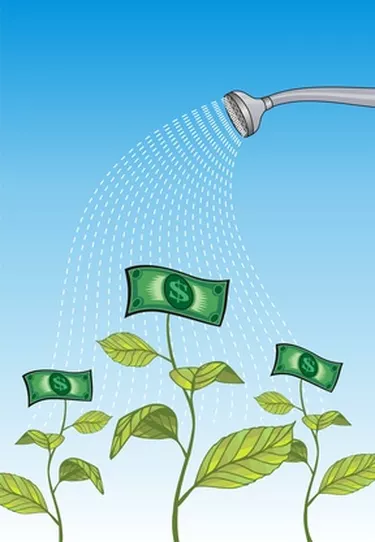
Occasionally, you may find yourself with some excess cash--say, $40,000--that you need to invest for the short term. It is important to remember that markets can be extremely volatile over short periods of time, and, therefore, you should make any short-term investments with the understanding of the risks inherent in actively traded markets.
Step 1
Determine the time frame for your investment. If you are certain that you can keep your capital locked up over a specific period of time, you will have more options. If you are uncertain as to whether you'll need to access your funds over the life of your short time frame, you should look only at savings or money market accounts provided by your bank or broker. A savings account in an FDIC-insured bank is the safest bet, since the federal government insures your funds up to $250,000. If, however, you know you can leave your money parked for a set period of time, you can look into certificates of deposit (CDs). CDs lock in your money for a contracted period of time. The longer you guarantee that the money will remain deposited, the higher the rate you will be paid.
Video of the Day
Step 2
Research several institutions when you look at short-term investment options. Rates vary significantly from institution to institution for both regular savings accounts and CDs. As you are researching rates for these two investment vehicles, always check that the banks are FDIC insured. If they are insured, you can narrow your choices based solely on interest rates paid.
Step 3
Build a short list of potential institutions that look attractive based on your research, and contact them. Ask if they are offering any teaser rates for new customers. You will often find that banks offer new depositors extra interest when they open a new account. With this approach, you may be able to squeeze a bit more interest income from your deposited capital.
Tip
If you intend to use a certificate of deposit, extend the life of the instrument as long as you reasonably can. Longer-term CDs nearly always pay higher rates. Often, a few months can increase dramatically the rate you earn.
Warning
While you may be tempted to chase larger returns in other investment opportunities, you should resist that urge if you expect your investment time frame to be short. Most investments other than those previously described are either illiquid (difficult to divest when you need your money) or volatile. For short-term investing, your main goal should be capital conservation, not investment returns.
Video of the Day